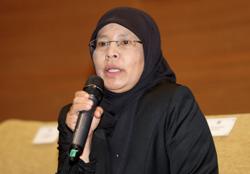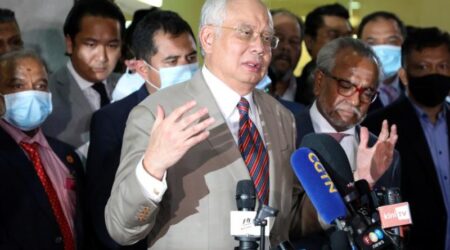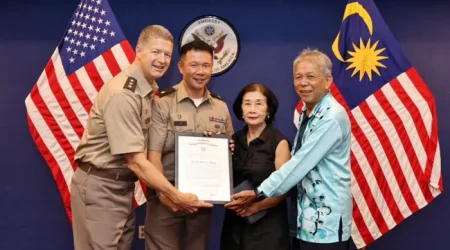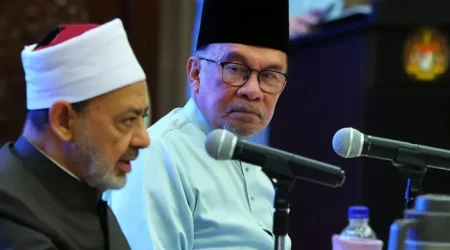‘Judiciary unfairly blamed’
PUTRAJAYA: The judiciary has been unjustly painted as a villain following the withdrawal of several criminal cases, although it was the Public Prosecutor that made the decision to drop the cases.
Chief Justice Tun Tengku Maimun Tuan Mat said the judiciary had been chastised for making consequential orders following the withdrawal of criminal cases, causing public confidence in the judiciary to erode.
However, she said the courts had only one of two very limited consequential options when a charge is withdrawn by the prosecutor.
“Depending on the facts, the two options are either granting an order of discharge not amounting to an acquittal, popularly called ‘DNAA’, or an acquittal.
“The courts cannot turn around and insist to the public prosecutor that a charge remain.
“Each of them, the judiciary and the public prosecutor, have their own constitutionally-demarcated functions, and both must be adjudged fairly for the exercise of their powers to the exclusion of the other.
“In the recent past, including last year, the Public Prosecutor decided to withdraw criminal charges against certain high- profile individuals.
“These decisions were not particularly well received by the public, but a large part of the blame was put on the judiciary,” she said in her speech at the Opening of Legal Year 2024 at the Putrajaya International Convention Centre yesterday.
“When a charge is withdrawn, the judge making the only available consequential orders is painted as corrupt, sometimes as incompetent, or sometimes both,” she said.
She said what the public failed to understand was that the person responsible for the decision to withdraw cases was the Public Prosecutor and not the courts.
Under Article 145(3) of the Federal Constitution, the Attorney General, who is also the Public Prosecutor, has the discretion to institute, conduct or discontinue any proceeding for an offence other than before a Syariah Court.
Tengku Maimun said judges do not answer to public opinion, popularity or sentiment by virtue of being appointed and not elected.
“Judges, in the truest sense, are accorded the independence to make decisions based solely on facts and the law without any attendant fear of the political or social outcome of their decisions,” she said.













Leave a Reply